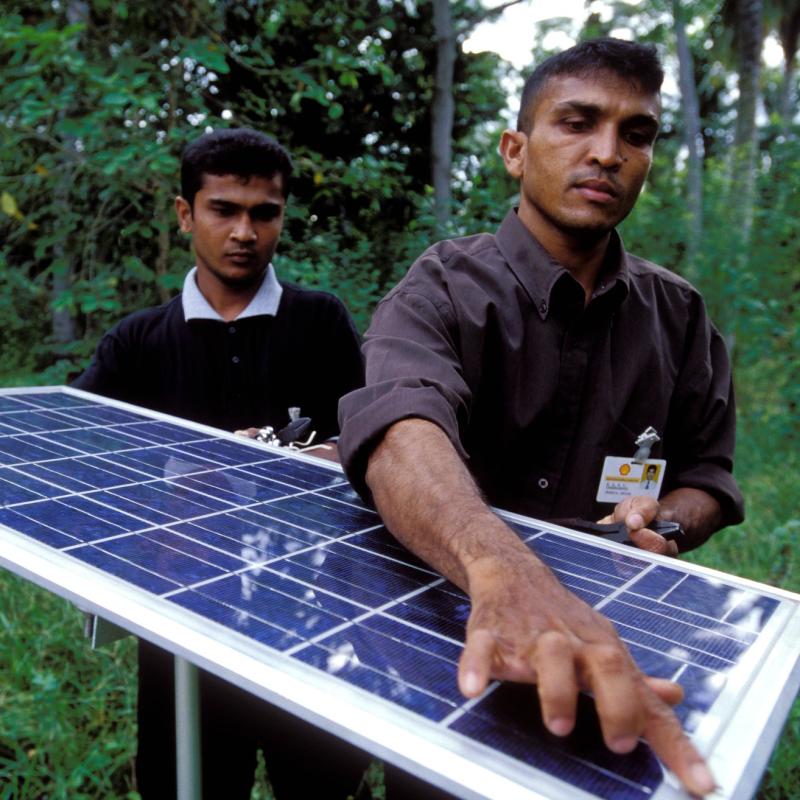We live in a time of climate crisis. Our Earth and its communities are already suffering immensely, and we cannot wait any longer to take swift action to prevent the worst consequences of climate change.
Caring for creation and supporting neighbors in need is a borderless concern.
But not all of us are bearing the burden equally. Poorer developing countries have been disproportionately affected by the climate crisis, which has largely been fueled by rich, industrialized nations like the United States. Our government needs to act responsibly and provide financial assistance to countries suffering as a result of our irresponsible actions.
As a faith-based organization, we recognize that the moral teachings of many religious traditions call us to not only care about climate change, but actively advocate for those who may not have the power to do so themselves.
Faith Leads to Action
A core tenet of faith is caring about the suffering of others. When there is severe flooding in Pakistan or drought in the Horn of Africa, there is a conviction to empathize and respond, even if we’re thousands of miles away.
Those of us who live in the United States may not physically experience the detrimental impacts of climate disasters in the Global South. However, we can still have a moral connection to the people and environments suffering under these unimaginable catastrophes. After all, caring for creation and supporting neighbors in need is a borderless concern. Indeed, climate change is not a domestic or foreign policy issue: It is an issue intertwined with problems of displacement, public health, and conflict, to name just a few.
In seeking an Earth restored and a society with equity and justice for all, Quakers understand the importance of fostering communities across different religions, cultures, and countries. Opening our hearts to our neighbors across the world is a moral responsibility that we can and must uphold through legislative advocacy.
International Climate Assistance is a Step in the Right Direction
The argument for investing in climate resilience abroad is simple enough: It is the right thing to do. But there are practical considerations, too. Building climate resilience internationally can strengthen U.S. national security by addressing instabilities in the Global South caused by increased water and food scarcity and extreme weather events.
Building climate resilience internationally can strengthen U.S. national security by addressing instabilities in the Global South caused by increased water and food scarcity and extreme weather events.
Additionally, international climate assistance bolsters domestic economic development here in the United States through the production and export of renewable energy technology. Accelerating the deployment of green energy abroad strengthens our trade activity and creates new green jobs at home.
Pope Francis, in his book “Laudato Si’: On Care for Our Common Home,” says that “a fragile world, entrusted by God to human care, challenges us to devise intelligent ways of directing, developing, and limiting our power.” Countries with great economic power like the United States are unequivocally called in this moment to use their power to address the damage caused by the global climate crisis.
Congress Must Authorize Sufficient Funding for FY2024
In the context of the 118th Congress, one of the most important ways to act on that responsibility is by calling on Congress to allocate sufficient foreign climate assistance in the next federal budget legislation. Wealthy, polluting countries like the United States have contributed immensely to the environmental harm sweeping the globe, and members of Congress have an obligation to support developing nations struggling with disasters.
The Biden administration, thankfully, pledged in 2021 to allocate $11.4 billion annually by 2024 to developing countries struggling with climate resilience. But Congress has been moving slowly to authorize the necessary resources. For the current fiscal year, our lawmakers dedicated only $1 billion to international climate assistance.
The president’s budget request for the fiscal year 2024, released just last month, proposes a $5 billion investment in aid for countries struggling with ongoing climate catastrophes. Congress must act boldly and, at a minimum, meet the president’s request in the final budget bill.
International climate assistance is a way of practicing stewardship over creation. We need to uphold our values by pressuring lawmakers to act rightfully and match or exceed the president’s funding request.


